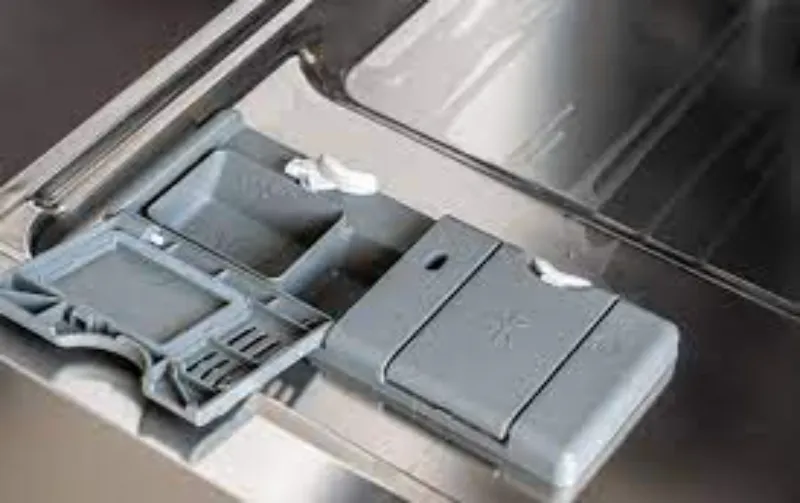Can You Have a Dishwasher With a Septic Tank?: The Truth Revealed
We may earn affiliate fees for purchases using our links (at no additional cost to you).
Yes, you can have a dishwasher with a septic tank. Proper detergents and maintenance are crucial for compatibility.
Homeowners with septic systems often wonder about the feasibility of using modern appliances that discharge water.
A dishwasher is one such appliance that raises concerns, primarily due to the chemicals used in dishwashing detergents that could potentially harm the septic system.
Ensuring your dishwasher is septic-safe involves using the right type and amount of detergent and avoiding the excessive disposal of food particles that can clog the system.
Regular inspections and pumping of the septic tank also contribute to a harmonious relationship between your dishwasher and the septic system, ensuring both functions effectively for years to come.
This balance allows for the convenience of modern living without compromising the integrity of your household’s wastewater management system.

Understanding Septic Tank Systems
Septic tank systems are common in households not connected to municipal sewage lines.
The basic function of these systems is to treat and dispose of household wastewater on-site.
They consist of a simple design: a septic tank where solids settle and decompose, and a drain field (also known as a leach field) where liquid effluent is purified by soil.
The heart of the system is the septic tank, which is often made of concrete, fiberglass, or polyethylene.
It’s designed to be watertight, preventing leakage of waste into the immediate environment.
On the inside, bacteria break down the solid waste, separating it from the liquid. This liquid, or effluent, then flows through pipes out into the drain field.
There, it undergoes additional treatment through filtration by soil, which removes harmful bacteria and nutrients.
| Component | Function |
|---|---|
| Septic Tank | It settles solids and commences their breakdown through bacterial digestion |
| Drain Field | Distributes effluent into soil for natural filtration process |
| Pipes | Connects septic tank to drain field, facilitating effluent transfer |
It is crucial for these systems to be properly maintained to prevent issues such as clogging or groundwater contamination, which can lead to system failure.
Compatibility Of Dishwashers With Septic Tanks
Dishwashers can be compatible with septic systems, yet their usage demands careful management.
The principal concern centers around the quantity of wastewater and the type of detergents used, as excessive water flow can overwhelm the septic tank, and harsh chemicals may disrupt the delicate bacterial balance crucial for decomposition within the system.
Choosing an efficient dishwasher model that is rated for septic system use becomes imperative.
Look for units with energy-saving settings and those that use less water.
Such appliances help maintain a balanced ecosystem by reducing the water volume and the frequency of detergents entering the septic tank.
- Avoid excess use of detergent and opt for septic-safe dishwasher soaps.
- Run the dishwasher only when full to limit water usage.
- Perform regular maintenance on the dishwasher to prevent leaks or inefficient operation.
- Consider installing a high-efficiency model to further lessen the load on your septic system.
Maintenance And Considerations
Maintaining a healthy septic system while using a dishwasher is paramount.
Regularly inspect and pump your septic tank to prevent solid waste buildup, which can clog the system.
It is also essential to use dishwasher detergents that are septic-safe to avoid introducing harsh chemicals that could disrupt the microbial balance essential for waste decomposition.
Additionally, conserve water and ensure your dishwasher is fully loaded before running it to reduce the frequency of cycles and the volume of wastewater entering your septic system.
Frequently Asked Questions On Can You Have A Dishwasher With A Septic Tank
Does A Dishwasher Affect Septic Systems?
Can Septic Tanks Handle Dishwasher Waste?
Are Eco-friendly Detergents Septic-safe?
How Often To Run Dishwasher With Septic?
Conclusion
Embracing a dishwasher need not clash with your septic system care. Opt for energy-efficient models and eco-friendly detergents.
Balance dishwashing frequency with water conservation in mind.
Regular maintenance is your ally in ensuring a harmonious relationship between your modern convenience and septic tank health.
Keep these points in check, and a clean kitchen coexists with a sound septic system.